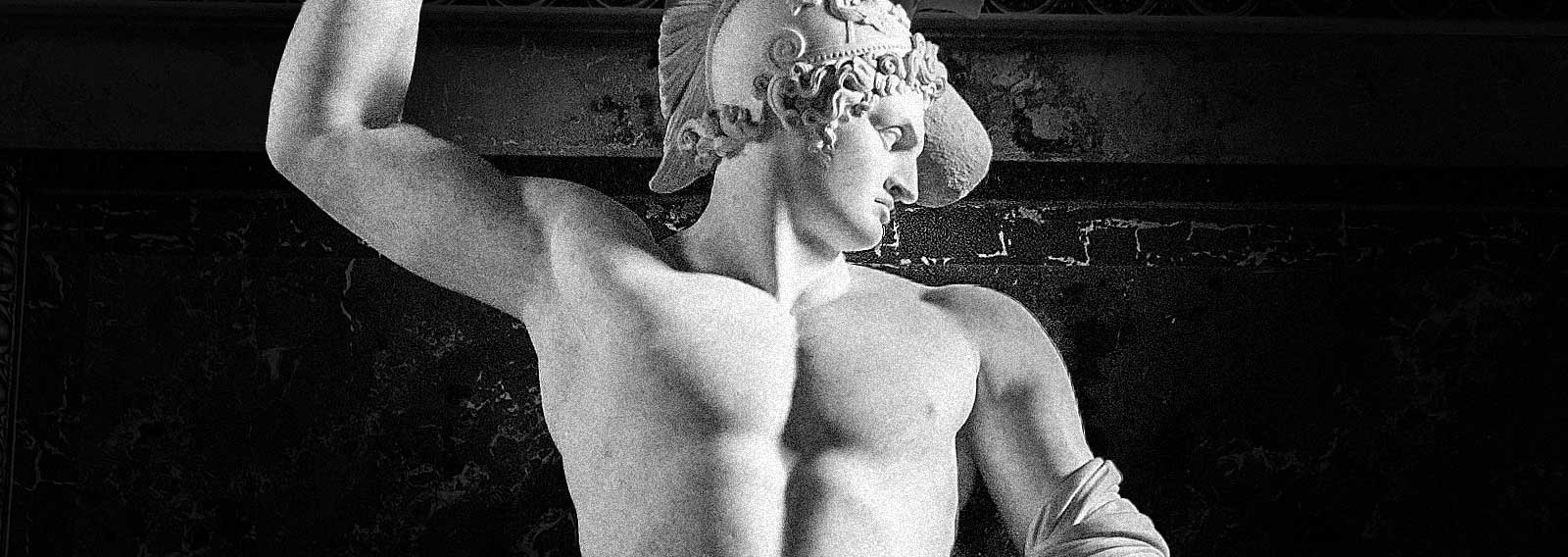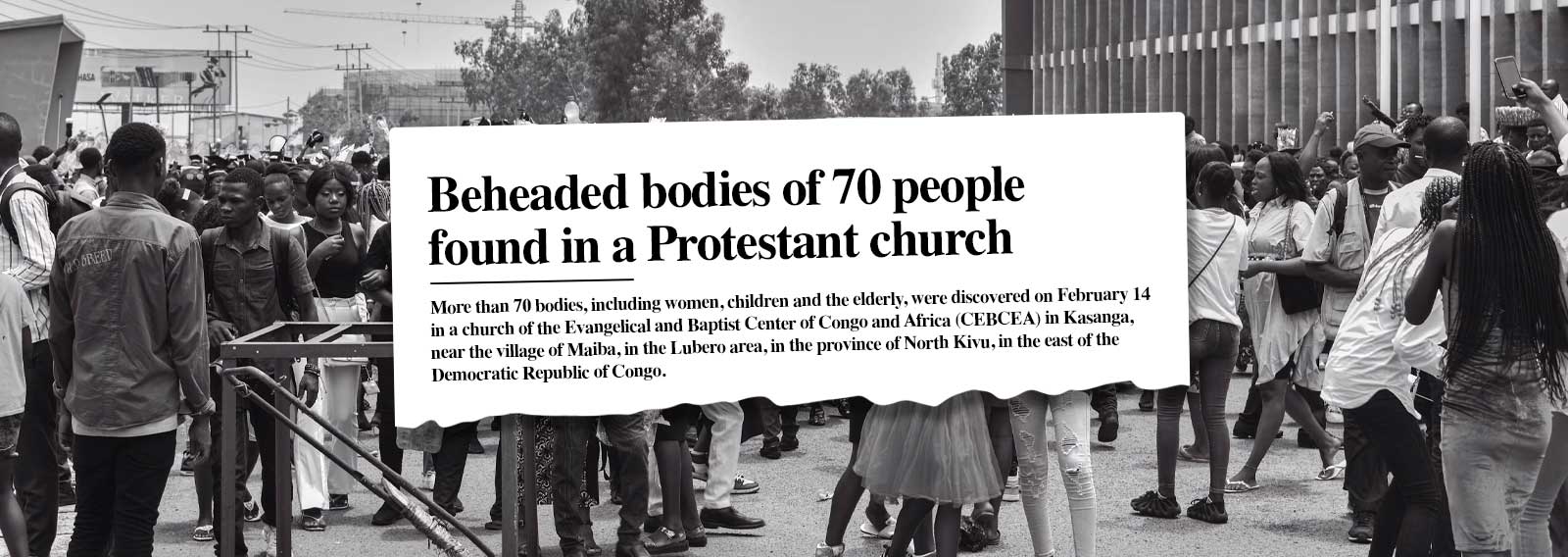John Calvin once said that the human heart is an idol-making factory. If we do not worship the God who created us, we will worship anyone or anything else. And we inevitably become like these objects of worship. We love our sins and we love our idols, and we move further and further away from who we were meant to be.
Back in 2008, the American New Testament scholar Greg Beale released a volume on idolatry called We Become What We Worship (IVP). In it he said this: “All of us are imitators, and there is no neutrality. We should disabuse ourselves of the notion that we can be spiritually neutral. We are either being conformed to an idol of the world or to God.” And this is serious business, given how often we find in Scripture idols and idolatry related to the demonic.
The truth is, if we get God wrong, we get everything else wrong. Our understanding of who we are and why we are here gets fully distorted and twisted if the one true God is not our focus and our sole object of worship. Being image-bearers of God, our proper sense of identity and self-worth is fully bound up in him. When we worship false gods of any sort, our identity gets radically warped and disfigured.
Today in the West everyone seems obsessed with identity. But unless they are in right relation with the one who made them in his image, their identity will always become ever more messed up. We see this so clearly in the distorted (and yes, demonic) assault on human sexuality.
The radical homosexual and trans revolutions are a classic case in point. These folks are obsessed with identity, but it is all focused in the wrong place. Sexual identity becomes an obsession and an idol and takes us away from God and freedom and into satanic bondage.
These matters are all covered very nicely indeed in a new book by Matthew Roberts: Pride: Identity and the Worship of Self (Christian Focus, 2023). Here in Australia, we just had the 46th annual Gay and Lesbian Mardi Gras over the weekend in Sydney. They call these things “pride marches”. They are all about finding identity and meaning in one’s sexuality.
But as Roberts explains so well, the worship of anything other than God will NOT give us our real identity and will only further entrap us in a downward spiral. Idolatry always does that. This book is well worth quoting from, so let me offer a number of choice remarks found in it.
Early on he writes: “The argument of this present book is that Christianity provides an answer which secularism cannot; indeed, the fundamental tenets of secularism are the problem. Since who we are is defined by our duty to worship God, our crisis of identity is at root a crisis of worship.” p. 16
He continues:
We do not know ourselves by focussing on ourselves; we know ourselves by focusing on God, for we are created to display Him. In this sense, all of Christian theology has been about ‘identity’, but it is deeply Christian that Christians have not thought of it that way. Christianity has the answers to identity-obsession, but we will not find them by indulging in it ourselves. It is of our very essence to direct our minds and hearts towards God. The more our being is filled with the knowledge of God, the more God is imaged in us, and the more we truly are and know what we are supposed to be.
pp. 19-20
He reminds us that all sin is false worship. We worship what we love – and we become like it. We can become consumed and transformed by gluttony or envy or lust. We can make work or money or sex our god. And we worship these things.
Our sinful desires really destroy the way we were meant to be: “Idols redefine reality and morality. But in so doing, they also redefine us. Partly, this is what we wanted: idols create a rewritten reality designed for us.” p. 28
Today’s idols of sex, freedom and self are destroying all three of these things. These sinful desires are at the heart of what the Ten Commandments deal with. The first says we should have no other gods, and the tenth says we should not covet or desire that which is not ours.
Says Roberts: “The tenth commandment takes us back full circle to the first. For to covet is to desire that which God has not given. Therefore, it is an implicit belief that the object of desire is better able to satisfy my needs than God is.” p. 50
He ties all this into the sexual revolution of our times. Claiming to be gay or trans or queer is a form of false identity – of idolatry. While sexual differentiation (between male and female) is important and part of who we are, that is not what the pride movement is all about. Our maleness and femaleness is indeed part of who we are. Texts like Galatians 3:28 do not mean we become androgynous non-sexual beings in Christ.
But the pride movement “has made this connection between identity and desire explicit, labelling people by their sexual desires and feelings.” He goes on:
But our lusts – in the historic Christian sense, which include but are not limited to sexual lusts – are no more definitive of our identity than is the parasite in the bloodstream to the malaria patient, for though powerfully present in us they are essentially alien to us. No matter what violence is done to themselves as images of the true God, those who believe themselves to be defined by their sexual passions remain His images still. It is in the rescue of the person by Christ from slavery to his desires, not surrender to an indulgence in them, that that person finds his true identity.
p. 103
Only biblical Christianity has the answer to the false religion of sexual identity politics that dominates the West. Going after these false gods is guaranteed to disappoint and cause more damage. Doing things God’s way brings healing and wholeness:
Finding our identity in God-given duty and not in human desire, we are restored to a true understanding of what it means to be a man or woman in the image of God, with the different responsibilities and roles those entail. Refusing to steal or bear false witness, we place others and the good of the community above ourselves. Truth-telling becomes, not a social offence or even a crime as it is becoming in the wake of transgenderism, but a vital part of true community, where the words of others can be trusted. And, most of all, we see coveting – the sinful desires of our hearts by another name – not as constitutive of our being but as destructive of ourselves, for to covet is nothing other but to have another god before the one true God. Putting our sinful desires to death in the service of God, we learn contentment with what God has given us, and satisfaction in God alone.
p. 133
Just as a homosexual has to deal with his lusts and covetousness, so too anyone else, and if one becomes a Christian, this becomes a lifelong struggle – but one that must be engaged in:
The rebirth and resurrection of human nature that the Holy Spirit brings about is one in which he creates a whole new desire, or even a set of desires: a desire to live for God, to please Him, to follow and keep His laws. What the Spirit does not do is simply take away the desires of the flesh. He will do that, when our sinful bodies finally rest in the grave or are remade at Christ’s return; but not before. Until then, the life of the Christian is one of a battle, between the old desires of the flesh and the new desires of the spirit.
p. 143
In his concluding chapter he says this:
It is not therefore saying too much to say that the crisis of identity being experienced in the West at present is at root a worship-crisis. We have thought that we could dispense with the worship of God which has been the centre of European culture for a millennium and a half and retain, indeed enhance, our understanding of ourselves. But the opposite is true. In the place of the living God, we have worshipped our Freedom in our Selves, and it has shrivelled us. Idolatry always does. If you focus your love on yourself, you will consume yourself. To find our real humanity, we must refocus ourselves and our love on the God who made us.
pp. 166-167
Given that so many Christians are fully confused and compromised by the sexual revolution and modern woke culture, reading a book like this will go a long way in helping them to sort things out, and get their focus back on God. Thank you Matthew Roberts for this important volume.



















